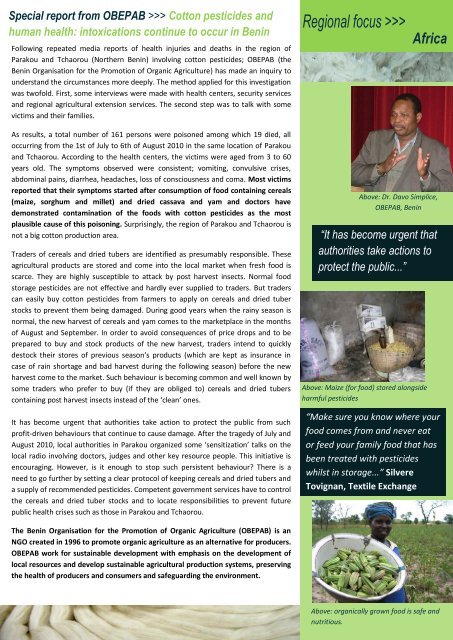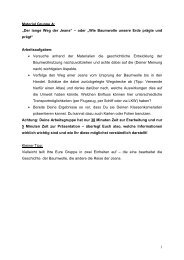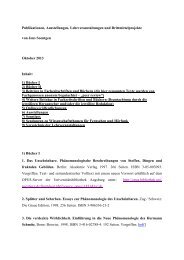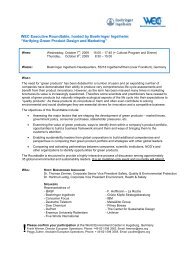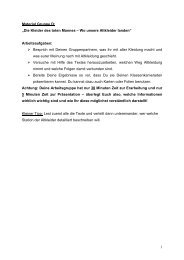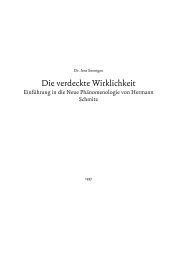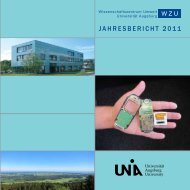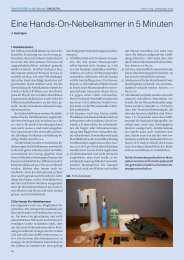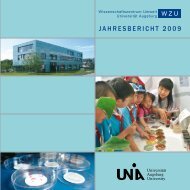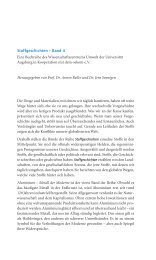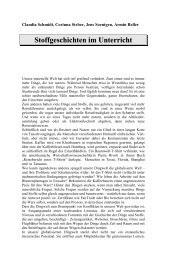Pricing organic cotton...
Pricing organic cotton...
Pricing organic cotton...
- No tags were found...
You also want an ePaper? Increase the reach of your titles
YUMPU automatically turns print PDFs into web optimized ePapers that Google loves.
Special report from OBEPAB >>> Cotton pesticides and<br />
human health: intoxications continue to occur in Benin<br />
Following repeated media reports of health injuries and deaths in the region of<br />
Parakou and Tchaorou (Northern Benin) involving <strong>cotton</strong> pesticides; OBEPAB (the<br />
Benin Organisation for the Promotion of Organic Agriculture) has made an inquiry to<br />
understand the circumstances more deeply. The method applied for this investigation<br />
was twofold. First, some interviews were made with health centers, security services<br />
and regional agricultural extension services. The second step was to talk with some<br />
victims and their families.<br />
Regional focus >>><br />
Africa<br />
As results, a total number of 161 persons were poisoned among which 19 died, all<br />
occurring from the 1st of July to 6th of August 2010 in the same location of Parakou<br />
and Tchaorou. According to the health centers, the victims were aged from 3 to 60<br />
years old. The symptoms observed were consistent; vomiting, convulsive crises,<br />
abdominal pains, diarrhea, headaches, loss of consciousness and coma. Most victims<br />
reported that their symptoms started after consumption of food containing cereals<br />
(maize, sorghum and millet) and dried cassava and yam and doctors have<br />
demonstrated contamination of the foods with <strong>cotton</strong> pesticides as the most<br />
plausible cause of this poisoning. Surprisingly, the region of Parakou and Tchaorou is<br />
not a big <strong>cotton</strong> production area.<br />
Traders of cereals and dried tubers are identified as presumably responsible. These<br />
agricultural products are stored and come into the local market when fresh food is<br />
scarce. They are highly susceptible to attack by post harvest insects. Normal food<br />
storage pesticides are not effective and hardly ever supplied to traders. But traders<br />
can easily buy <strong>cotton</strong> pesticides from farmers to apply on cereals and dried tuber<br />
stocks to prevent them being damaged. During good years when the rainy season is<br />
normal, the new harvest of cereals and yam comes to the marketplace in the months<br />
of August and September. In order to avoid consequences of price drops and to be<br />
prepared to buy and stock products of the new harvest, traders intend to quickly<br />
destock their stores of previous season’s products (which are kept as insurance in<br />
case of rain shortage and bad harvest during the following season) before the new<br />
harvest come to the market. Such behaviour is becoming common and well known by<br />
some traders who prefer to buy (if they are obliged to) cereals and dried tubers<br />
containing post harvest insects instead of the ‘clean’ ones.<br />
It has become urgent that authorities take action to protect the public from such<br />
profit-driven behaviours that continue to cause damage. After the tragedy of July and<br />
August 2010, local authorities in Parakou organized some ‘sensitization’ talks on the<br />
local radio involving doctors, judges and other key resource people. This initiative is<br />
encouraging. However, is it enough to stop such persistent behaviour There is a<br />
need to go further by setting a clear protocol of keeping cereals and dried tubers and<br />
a supply of recommended pesticides. Competent government services have to control<br />
the cereals and dried tuber stocks and to locate responsibilities to prevent future<br />
public health crises such as those in Parakou and Tchaorou.<br />
Above: Dr. Davo Simplice,<br />
OBEPAB, Benin<br />
“It has become urgent that<br />
authorities take actions to<br />
protect the public...”<br />
Above: Maize (for food) stored alongside<br />
harmful pesticides<br />
“Make sure you know where your<br />
food comes from and never eat<br />
or feed your family food that has<br />
been treated with pesticides<br />
whilst in storage...” Silvere<br />
Tovignan, Textile Exchange<br />
The Benin Organisation for the Promotion of Organic Agriculture (OBEPAB) is an<br />
NGO created in 1996 to promote <strong>organic</strong> agriculture as an alternative for producers.<br />
OBEPAB work for sustainable development with emphasis on the development of<br />
local resources and develop sustainable agricultural production systems, preserving<br />
the health of producers and consumers and safeguarding the environment.<br />
Above: <strong>organic</strong>ally grown food is safe and<br />
nutritious.


